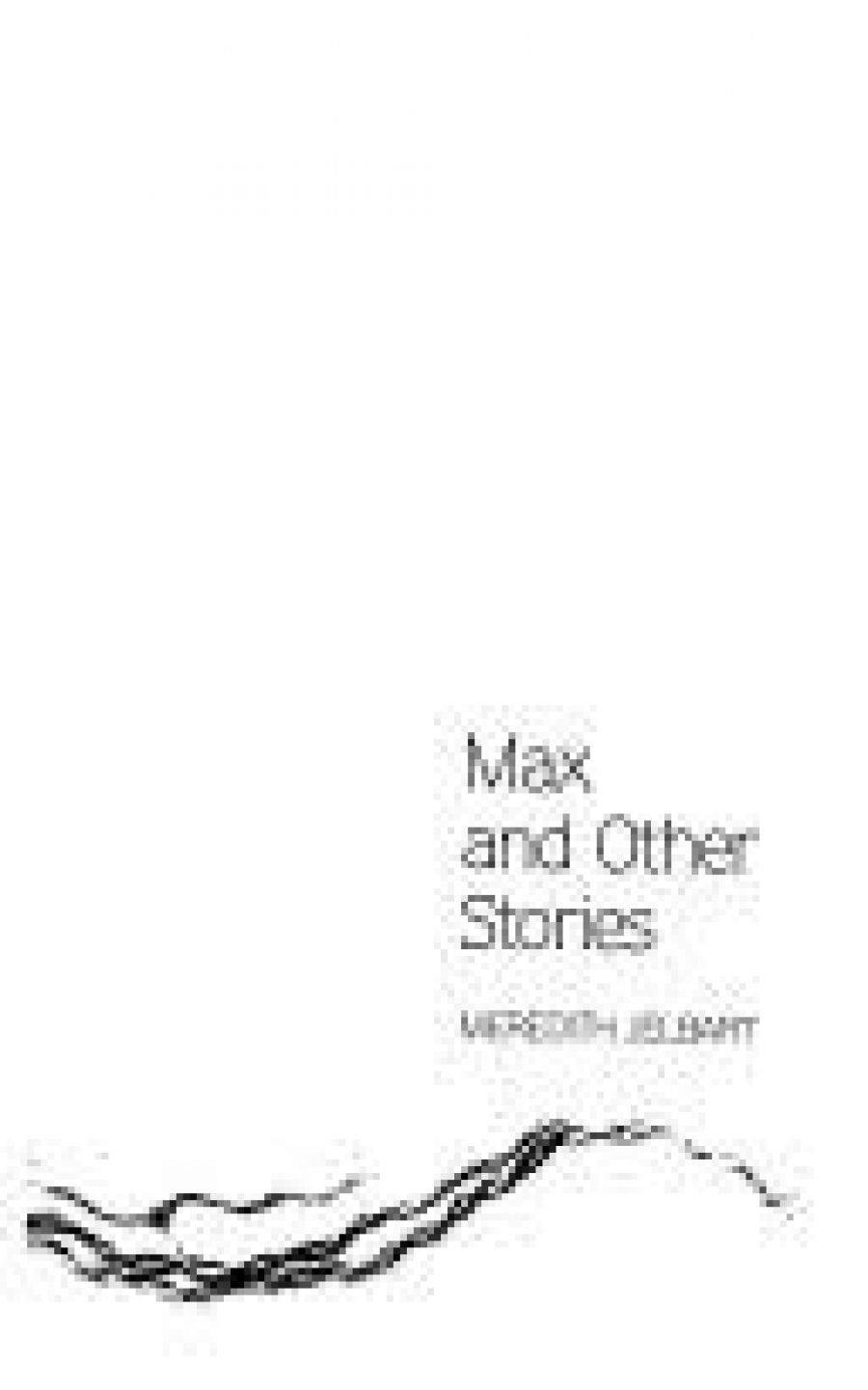
- Free Article: No
- Contents Category: Short Stories
- Custom Article Title: Doris Leadbetter reviews 'Max and Other Stories' by Meredith Jelbart
- Review Article: Yes
- Article Title: Penny plain and worth it
- Online Only: No
- Custom Highlight Text:
There’s a lot to be said for plain writing for writing in such a way that the reader is nudged along through nuance and observation to perception. Plain writing tends to make the reader feel as if they too are watching impassively what the writer sees. It’s a little like standing in shallow water, not noticing the tide coming in. Plain writing involves the reader; any shocks, or passions, come from within the story not from the use of highly coloured words or manipulative tricks.
There used to be a saying: Penny plain; twopence coloured. It came from the sale of cardboard prints in a London toyshop. The uncoloured prints were considered inferior, less exciting. They left too much to the imagination.
- Book 1 Title: Max and Other Stories
- Book 1 Biblio: Heinemann, 224 pp, $14.95 pb
‘Penny plain’ writing is well worth the twopence. It can lead to a sort of chiaroscuro, an effect of light and shade that is subtle and persuasive.
Much of Meredith Jelbart’s book is written in this deceptively bland way. The eye tends to slide easily along the track of narration, the mind taking in what one is told. Yet there will be sudden images, congruences of event and comment that sharpen the reader’s attention.
The first story, ‘Max’, is about the death of a child who lived for only three weeks. More is left out than put in to tell how Max affected the people around him in life and death. There is pain in the story, and sentiment, and yet it is told with a distinctive calm, almost detachment.
Ted, the eponymous focus of another story, shows us a man whose wife is satisfied with what they have and does not see her husband’s restlessness - his urge to explore, to travel, to move on - as anything other than a minor ruffle on the smooth surface of their lives. Perhaps he shares her view, until the urge strengthens.
The stories move through time, through the complexities of relationships of mothers, sons, daughters, defined by custom rather than by choice. Events, even lives, are reshaped sometimes purposefully, sometimes by chance - often without explanation or justification.
It’s an interesting collection of stories, and engaging. We will all recognise ourselves and our dilemmas in the book. Jelbart is a perceptive writer with a gift for putting a finger, very gently, on the pulse of daily life and the flow of relationships as they form and reform.


Comments powered by CComment